
Do you have a question about the Sony BRAVIA KDL-50W805B and is the answer not in the manual?
| Screen Size | 50 inches |
|---|---|
| Display Type | LED |
| 3D | Yes |
| Smart TV | Yes |
| HDMI Ports | 4 |
| USB Ports | 2 |
| Refresh Rate | 100 Hz |
| Wi-Fi | Yes |
| Ethernet Port | Yes |
| Built-in Wi-Fi | Yes |
| Sound Output | 20W |
| Resolution | 1920 x 1080 |
| Dimensions (W x H x D) | 1116 x 650 x 64 mm (without stand) |
| Weight | 13.9 kg (without stand) |
Learn to operate the TV using the IR or Touchpad remote controls for basic functions and settings.
Navigate and understand the different categories and options available on the TV's Home Menu for content access.
Discover methods to search for information within the on-screen i-Manual, including title lists and indexes.
Access and launch various TV applications and services from the Apps category for enhanced functionality.
Identify and understand the physical components and connectors of the TV set.
Learn the functions and operations of the buttons on the TV's rear control panel and remote controls.
Explains the operation and features of the Touchpad Remote Control for advanced TV interaction.
Learn methods to select TV channels using Discover, the Home Menu, or the number buttons for seamless viewing.
Experience immersive 3D entertainment by connecting compatible devices and using active 3D glasses.
Watch two pictures simultaneously on the screen, with one displayed in a full screen and the other in an inset window.
Adjust the picture display to fit various screen formats and aspect ratios for optimal viewing.
Select desired audio signals and adjust sound modes for an enhanced audio experience.
Watch movies from online services, USB devices, or your home network via the Movies category.
Play back music content from various sources, including online services, USB devices, and home networks.
View photos from online services, connected USB devices, or your home network through the Album category.
Access and browse websites directly on your TV when connected to the internet for information and entertainment.
Enjoy a variety of on-demand entertainment, including movies and cartoons, through internet video services.
Make widescreen video calls and voice calls to friends and family using the Skype application.
Use Social Viewing to chat with friends and see what others are saying about the show in real-time.
Invite friends to watch the same programme or express liking for shows via the programme guide.
Connect external devices like BD/DVD players or cameras via HDMI for optimum picture and audio quality.
Connect USB storage devices to enjoy photos, music, and videos stored on them, and check supported file formats.
Connect your PC to the TV via HDMI to enjoy music, pictures, and other content stored on it.
Connect audio systems via HDMI or optical cable for enhanced sound output and control.
Enable BRAVIA Sync control to operate connected BRAVIA Sync-compatible devices using the TV's remote.
Access and utilize the Sync Menu to control connected BRAVIA Sync-compatible devices and manage audio output.
Automatically adjust picture and sound settings based on the content for optimal viewing and listening.
Reduce power consumption by adjusting picture brightness or enabling idle TV standby features.
Set the current time manually, configure on/sleep timers for automated TV operation.
Connect your TV to a wireless network for internet access and home networking benefits.
Establish a stable internet connection using a wired LAN cable for reliable access.
Stream photos, music, and videos from a PC on your home network to the TV for shared enjoyment.
Connect directly to Wi-Fi Direct devices like smartphones or PCs without a wireless router.
Control your TV using the "TV SideView" application on your mobile device for convenient remote operation.
Mirror your smartphone's screen onto the TV wirelessly by touching the device to the remote control.
Display your mobile device's screen on the TV wirelessly using Miracast technology for content sharing.
View and share favorite photos with family and friends by connecting smartphones/tablets to the TV.
Choose from various preset picture modes like Vivid, Cinema, or Sports for optimal visual settings.
Customize sound profiles, surround effects, and equalizer settings for an enhanced audio experience.
Automatically scan and store all available digital channels by performing an auto tuning process.
Set a 4-digit password for parental lock to control access to age-restricted content and settings.
Keep your TV's software up-to-date by checking for and installing the latest broadcast and service updates.
Run built-in diagnostic tests to check if the TV is working properly and identify potential issues.
Resolve common picture and screen display issues, such as distorted images, flickering, or incorrect colours.
Troubleshoot audio problems like no sound, audio noise, or distorted sound for a clear listening experience.
Address issues related to connected devices, including no picture, input source selection problems, or USB device recognition.
Resolve issues with wireless connectivity, internet access, and application performance on the TV.
Troubleshoot common problems with the TV remote, such as it not operating or battery issues.
Save frequently viewed pages in the i-Manual for quick access later, facilitating easier navigation.
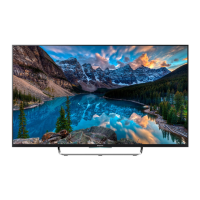




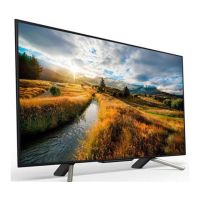
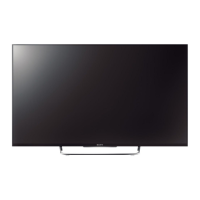


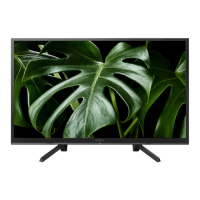
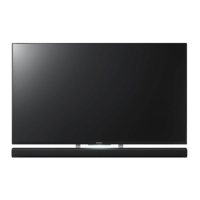
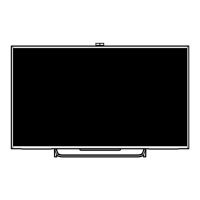
